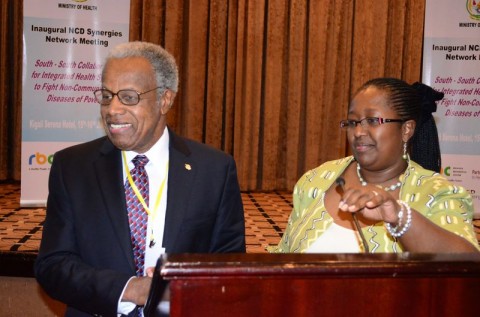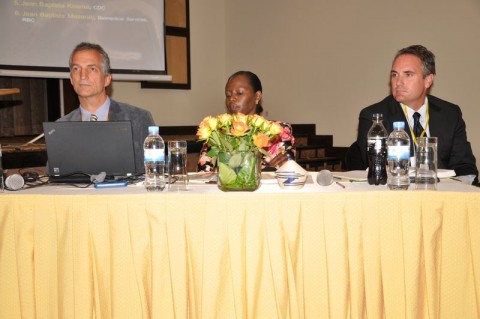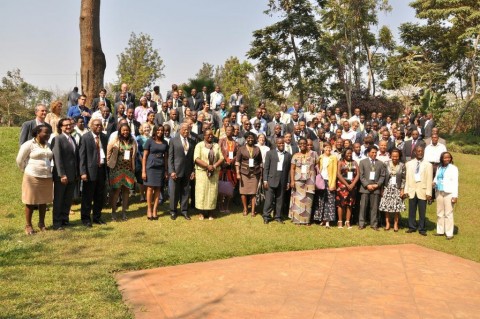 Global Health Delivery launches NCD Synergies Initiative in Rwanda
Global Health Delivery launches NCD Synergies Initiative in Rwanda
The newly formed Non-Communicable Disease Synergies Network, led by the Rwanda Ministry of Health and Partners in Health, held their inaugural meeting July 15 and 16 in Kigali, Rwanda. The group aims to promote collaboration amongst countries that are combating both NCDs and poverty.
DCP3 Project Director Rachel Nugent participated in the meeting and is leading efforts to form a collaboration between DCPN, the Ministry of Health, and Partners in Health to improve institutional capacity in economics in Rwanda. Visit the DCP Country Network page for more information on this collaboration. Surgery Volume editor Margaret Kruk and Mental Health Volume editor Theo Vos were also in attendance.
The inaugural meeting, “South- South Collaboration for Integrated Health Systems to Fight Non-Communicable Diseases of Poverty” opened with remarks from Minister of Health Dr. Agnes Binagwaho, a member of the DCP3 Advisory Committee to the Editors. Sir George Alleyne and Professor Srinath Reddy both delivered keynote addresses at the meeting.
Following the inaugural meeting of the NCD Synergies Network, a virtual expert panel was held July 22-26 on GHDonline to discuss outcomes from the meeting, for those who could not attend.
Resources:
 |
 |
|
| Sir George Alleyne and Rwandan Health Minister Agnes Binagwaho deliver opening remarks. |
DCP3 mental health editor Theo Vos (left) participates in the NCD "monitoring and evaluation" session of the meeting.
|
 NCD Synergies meeting members gather for a group photo outside the meeting venue in Kigali. |
|
About the NCD Synergies Initiative
The NCD Synergies Initiative began in January 2013 as a joint effort between the Rwanda Ministry of Health and Partners in Health, and is an outgrowth of years of collaboration between the two organizations on integrated NCD treatment systems. The Synergies Initiative responds to the growing body of evidence that NCDs are not simply an epidemic of excess. NCDs are a significant fraction of the burden of disease borne by people living in extreme poverty, and together with infectious diseases and maternal and child deaths, account for the totality of death and disability in these vulnerable populations.
To date approaches to planning, funding, and implementing integrated NCD services have predominantly been developed in resource rich environments and then disseminated to health planners and practitioners in low income countries. The NCD Synergies Initiative aspires to create a forum for “horizontal” knowledge sharing guided by the experience of professionals working in resource limited settings: planners, decision makers, and practitioners who have addressed the challenge of treating NCDs.
The Synergies Network conference in July was the first opportunity for Network participants to engage in structured discussions intended to motivate planning for NCD treatment, catalyze and support technical collaborations, and to develop a common vocabulary with which to sustain cooperative efforts over time.



